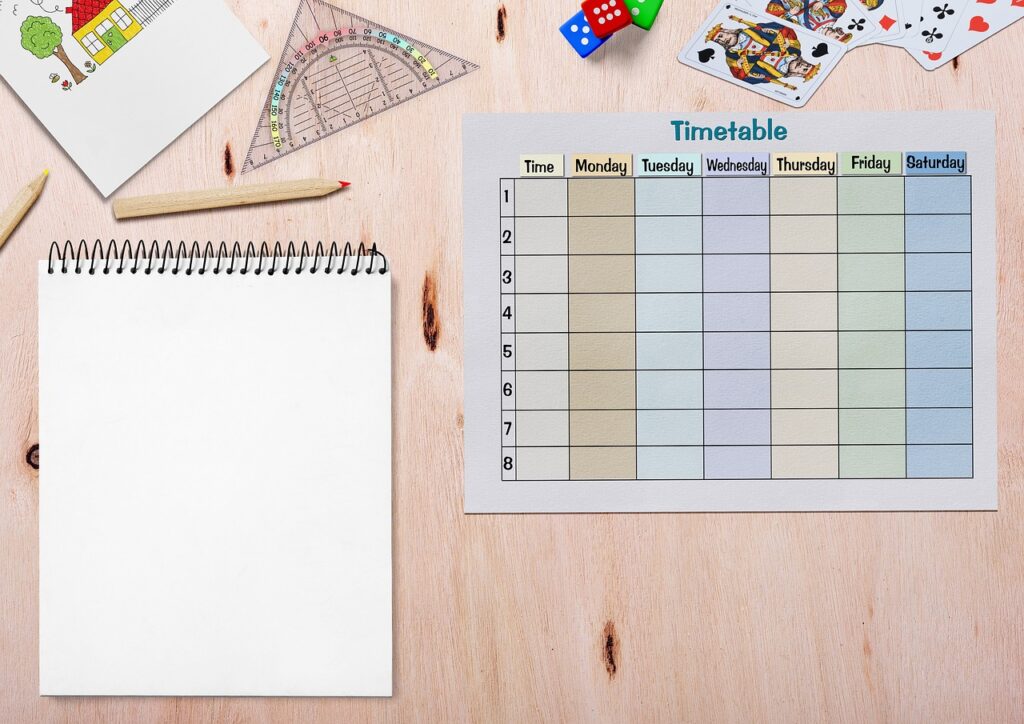For many people, September is the month for returning to a routine. Although January is often touted as the time of year to adopt new habits, September signals an end to the carefree days of summer and the beginning of another new school year. Structured days become a matter of survival.
You may not know, however, that establishing a routine is about more than simply coping with a busy schedule. Structure and routine can actually help you feel more organized and in control, which in turn lowers stress. Think about the initial chaos of returning to school, for instance. Until everyone falls into a routine, it can feel overwhelming. Stressful situations make it difficult to focus and stay on task. A lack of focus may cause you to think about the stressful situation even more, and that can lead to higher levels of anxiety.
To combat the problem, begin by making your days more predictable. This can vary based on what works best for you. Some people like to structure their days with a to-do list while others prefer a more rigid schedule. The goal is to create a time for waking, eating, working, sleeping, and other activities throughout your day — and then to stay consistent. This not only ensures that you accomplish the basics, but you also won’t need to spend a lot of time and effort making decisions. That frees you up to do the things you love.
How you will benefit
Reduced levels of anxiety: As already mentioned, having to make too many decisions can cause stress and keep you from getting things done. It’s one of the main reasons Steve Jobs was always seen wearing a black turtleneck. No one with a lot on their plate wants to waste precious mental energy deciding what to wear every morning. A plan helps you stay in control, even if it’s only about what you will wear, what you will eat, and what time you will wake up each day.
Better sleep: You probably already know that your body operates on a circadian rhythm, a 24-hour internal clock that regulates multiple aspects of your life. Going to bed and waking up at about the same time every day helps you maintain that rhythm. When the cycle is disrupted, depression and other mental health challenges are more likely to surface.
Better behavior: This one may pertain mainly to children, but you might argue that adults can be affected as well. Without a consistent routine for meals, bedtime, and other activities, it’s easy to become irritable and less able to cope. In children, this may manifest itself in various behavior disorders.
Increased productivity: When you don’t need to spend a lot of time making decisions, such as what to wear and what to prepare for dinner, life is less stressful. For instance, if you start each day trying on different outfits because it feels like you have nothing to wear, it could be that you have too many choices. Instead, create a few basic outfits that allow you to mix and match throughout the week. If you’re struggling to plan healthy meals, try preparing several meals on a Sunday afternoon and eat them throughout the week. Better yet, select a few quick and easy recipes that you can prepare on busy weekdays. All of this results in greater productivity when it comes to the important things in life, such as a big project you want to accomplish or spending more time with your loved ones.
Greater happiness: It’s important to adopt a routine that aligns with what matters to you. Watching television may be part of your daily routine, but it could also prevent you from connecting with friends and loved ones. Evaluate any negative habits to determine if they’re making your life more meaningful. If not, it may be time for some adjustments. A routine will probably only make you happier if it allows you to have more time and energy for the things you enjoy and want to pursue.
As you settle into the rhythms that often accompany a new school year, think about adopting a daily and weekly routine that leads to greater fulfillment and improved mental health.
Dr. David Lowenstein is a Columbus, Ohio-based psychologist with more than 35 years of experience. He conducts individual, family, and group therapy sessions in his German Village office and also via telehealth. Dr. Lowenstein is also available for expert forensic testimony, and for educational workshops and presentations. He is frequently called upon as an expert source for print, radio, and broadcast media. Contact Dr. Lowenstein at Lowenstein & Associates, 691 South Fifth Street, Columbus, Ohio, 43206, or call 614.443.6155 or 614.444.0432.


